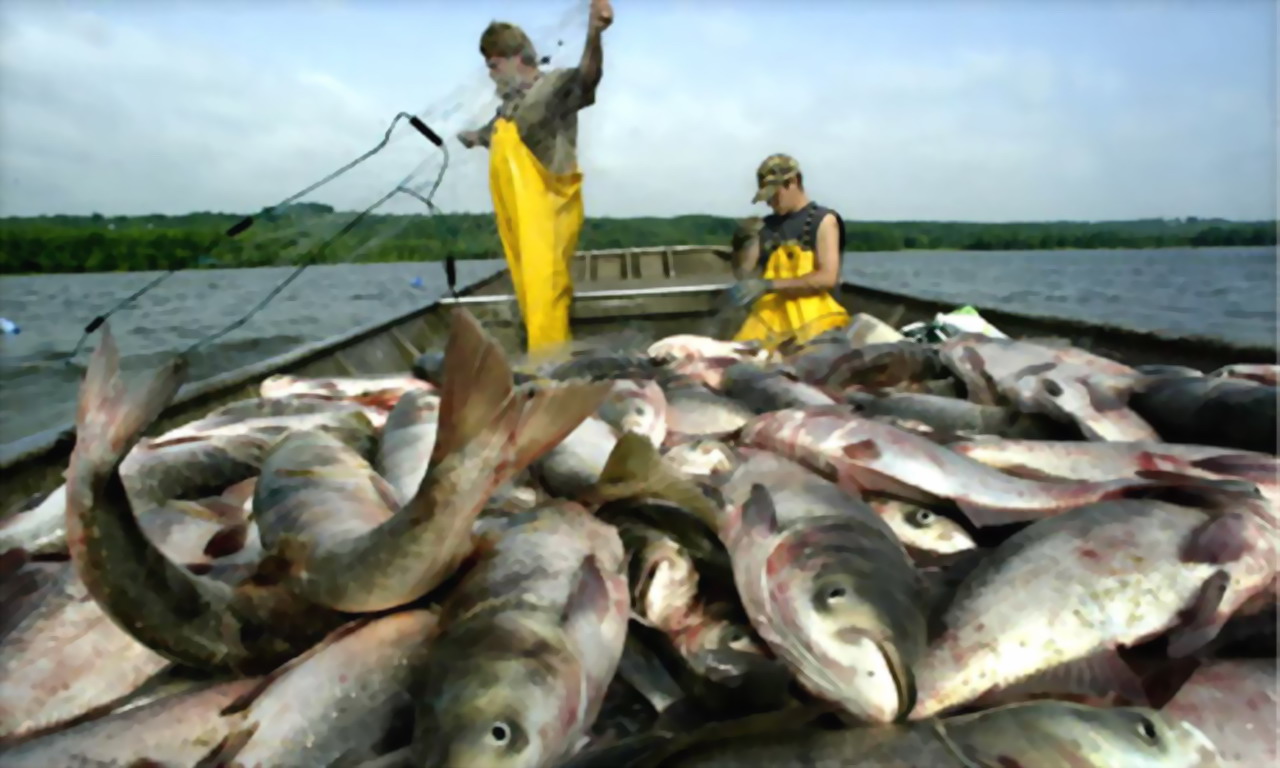

|

February 26th 2012
Fishermen catching Asian carp in the Illinois River. Introduced to clean tanks in fish farms, the carp starve native species by eating 40% of their own bodyweight in plankton daily. Photograph: AP
The Obama administration will spend about $50m this year to shield the Great Lakes from greedy Asian carp, including water sampling to determine whether the destructive fish have established a foothold in Lakes Michigan and Erie, officials said Thursday.
An updated federal strategy for preventing an invasion also includes stepped-up trapping and netting in rivers that could provide access to the lakes, as well as initial field tests of chemicals that could lure carp to where they could be captured, officials said. An acoustic water gun that could scare the carp away from crucial locations will be tested near a Chicago-area shipping lock that some want closed because it could serve as a doorway to Lake Michigan.
"This strategy builds on the unprecedented and effective plan we are implementing to keep Asian carp out of the Great Lakes while we determine the best long-term solution," said John Goss, the Asian carp programme director for the White House Council on Environmental Quality. He said initiatives in 2012 would "strengthen our defenses against Asian carp and move even more innovative carp control projects from research into implementation."
The federal government has already budgeted more than $100m over the past two years in the fight against bighead and silver carp. They were imported from Asia decades ago and have migrated up the Mississippi River and its tributaries since escaping from fish farms and sewage lagoons in the seep south. They have infested the Illinois River, which leads to Lake Michigan
The carp eat massive amounts of plankton tiny plants and animals at the base of the aquatic food web. Scientists differ about how widely they would spread in the Great Lakes, but under worst-case scenarios they could severely damage the $7bn fishing industry.
©Norfolk Fishing Network 2004 - 2024®All Rights Reserved.